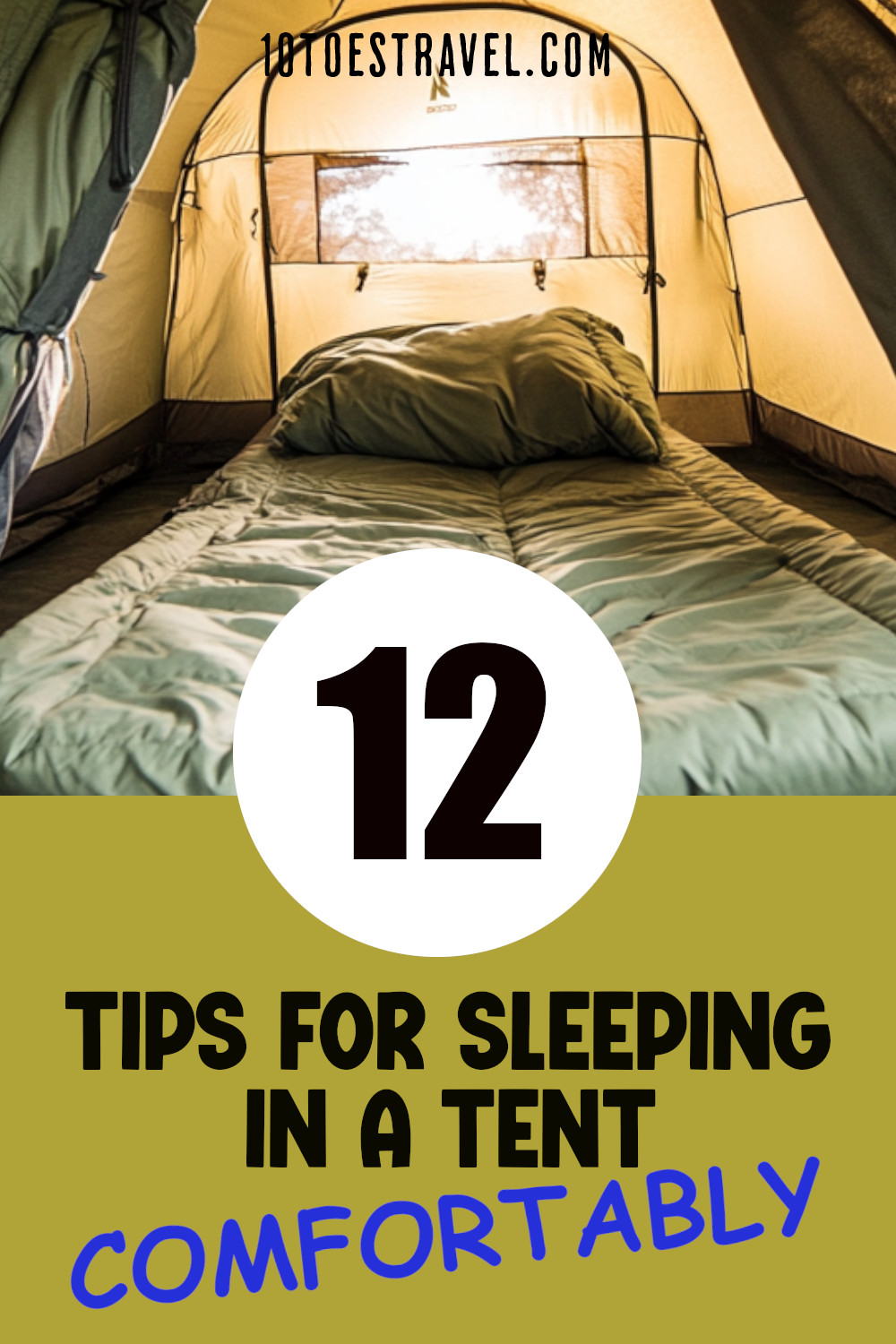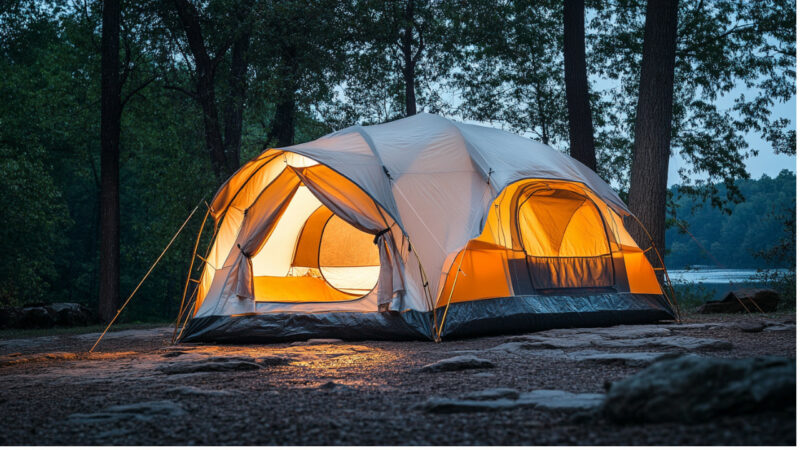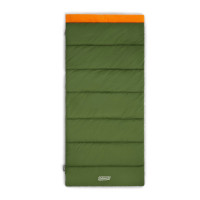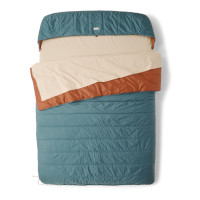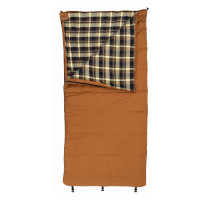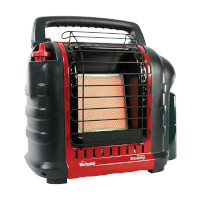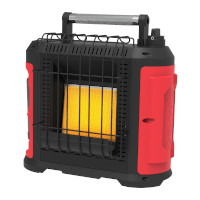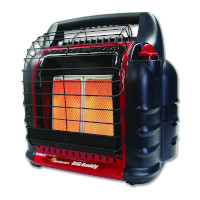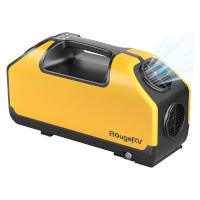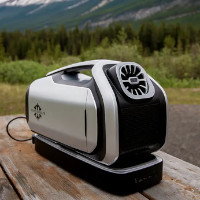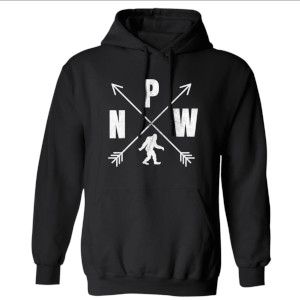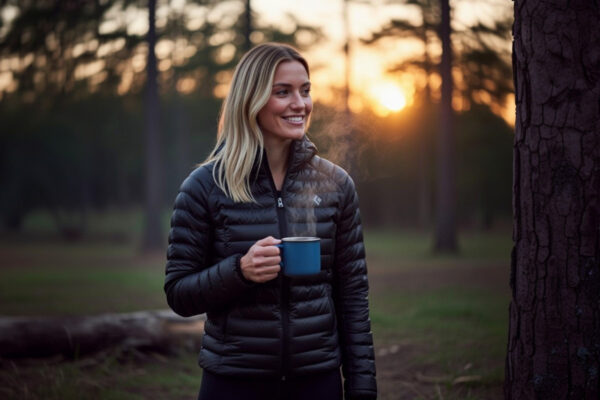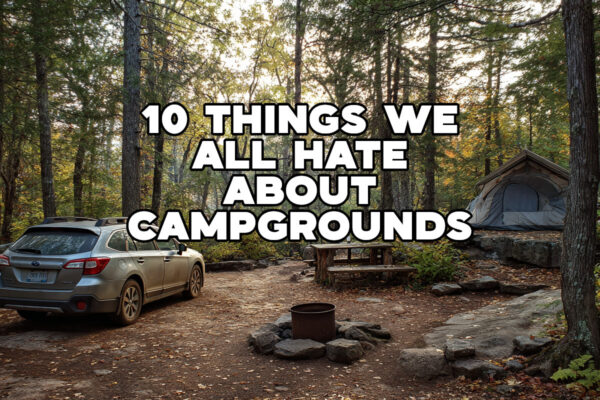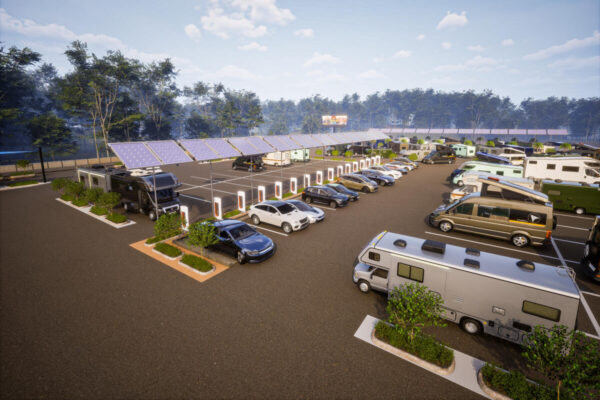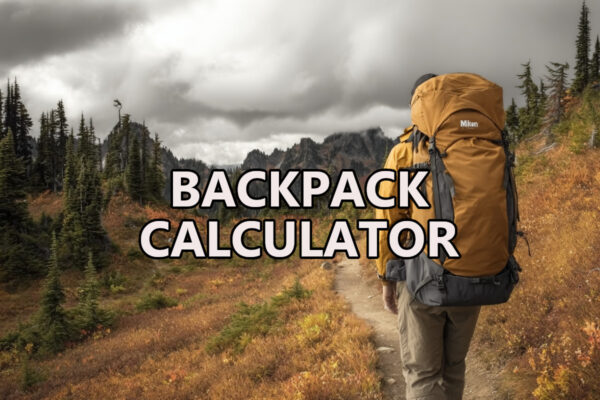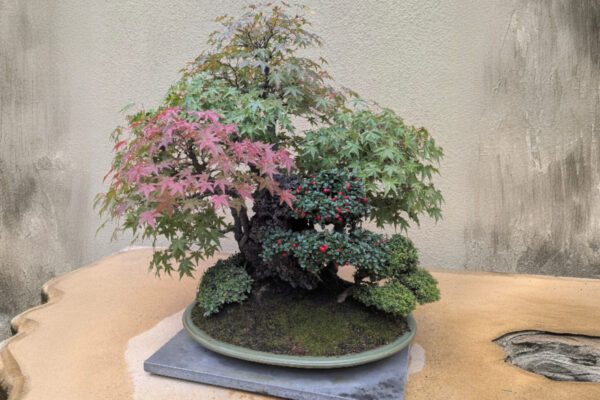Going on a camping trip is a great way to enjoy nature. You don’t have to lose out on a good night’s sleep, even if you use a sleeping bag instead of a mattress. If you’re wondering how to sleep comfortably in a tent, especially during unpredictable PNW weather, getting ready ahead of time can make sleeping outside feel truly cozy. Here are some tips for sleeping in a tent comfortably, so you can wake up feeling refreshed and ready for fun outdoor activities like hiking in Washington State.
12 Key Tips for a Cozy Tent Camping Sleep Experience
Getting a good night’s sleep in a tent depends on several things. To find the most comfortable way to sleep in a tent, especially on PNW camping trips, you need to have the right gear for your needs and the environment. It is important to think about extra items, like bringing extra blankets. Organizing your sleep area well and staying hydrated is also key. These things will help improve your time camping and ensure you’re sleeping comfortably while tent camping.
When you pay attention to these points about sleeping in a tent, you can enjoy better rest. This way, you can appreciate the beauty and calmness of nature during your camping trip.
Choose the Right Tent for Comfortable Camping Sleep
Choosing the right tent can make a big difference in how well you sleep. If you’re searching for tips on sleeping comfortably in a tent with family, think about how many people will use the tent and the weather you expect—especially rainy PNW conditions. Families or groups may prefer a larger tent that feels roomy. Solo campers might want a smaller and lighter option. Remember that when a tent puts a person rating on a tent, that is the maximum number of people that can lay on the floor and sleep. That number is usually significantly higher than how many people can sleep in a tent comfortably.
Remember that when a tent company puts a person rating on a tent, that is the maximum number of people that can lay on the floor and sleep. That number is usually significantly higher than how many of people can sleep in that tent comfortably.
My suggestion is for a family of 3-4 to get a 6 or 8 man tent. This will give you room to move around and be comfortable.
Ventilation is another key point to consider. Find tents that have mesh panels, windows, or vents. These features allow air to flow through and stop moisture from gathering, especially in warmer weather. Good ventilation keeps the internal space cool and comfortable at night.
It’s also wise to buy a tent footprint or ground cloth. This layer goes under your tent to protect it from moisture, dirt, and sharp items. It can help your tent last longer and provide better insulation.
Pick a Quality Sleeping Pad or Air Mattress for Comfort
Wondering how to sleep comfortably in a tent on uneven ground? Investing in a quality air mattress or sleeping pad acts as a barrier between your body and the hard, cold ground. Sleeping right on the ground can cause discomfort and back pain. It can also lead to a big loss of body heat, making a good sleeping pad a must-have, particularly for PNW backpackers facing damp terrain.
Air mattresses feel more like a traditional bed and are popular among car campers who want comfort. Backpackers usually choose lightweight, self-inflating sleeping pads because they are easy to carry and pack.
The best choice will depend on your personal needs, the type of camping you plan to do, and your budget. Make sure to pick a model with the right R-value for the temperatures you expect. This will help you stay warm and comfortable.
Air Mattress vs. Foam Pad: Best for Tent Camping Comfort
Air mattresses and foam pads have their own pros and cons. Car campers like air mattresses for their comfort and ease, but are bulkier. The more comfortable it is, the more space it will take up. Foam pads are lightweight and can be easily packed by backpackers, but offer just the most minimal level of comfort and are really just there to add some insulation between you and the ground. One great option is to use both!
One camping trick is to put down a basic foam pad, then put your air mattress on top of that. That way you get both insulation and comfort!
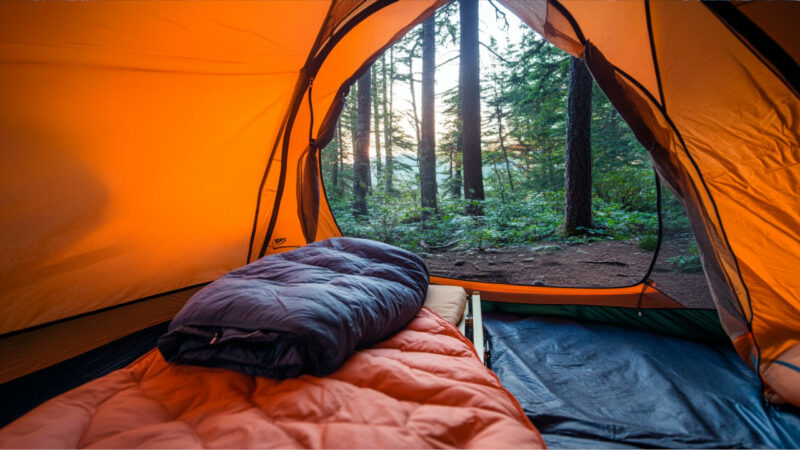
Top Sleeping Bag Picks for Comfortable Camping
For some people, even the best inflatable mattresses aren’t going to cut it for sleeping comfortably while tent camping. That or it is just difficult getting up and down off the ground. The most comfortable way to sleep in a tent for those with back issues is a cot! You can pick a basic army-style cot, or go with something more on the glamping end, like an inflatable cot, but either way, a cot will keep you up off the ground and give you a better night’s sleep.
You can pick a basic army-style cot, or go with something more on the glamping end, like an inflatable cot, but either way, a cot will keep you up off the ground and give you a better night’s sleep.
Pro Tip: If you go with just a basic cot, consider putting down a mattress pad or inflatable pad on it as well. This will insulate you on the bottom and help keep you warm on cool nights.
For A Good Night's Sleep Bring The Right Sleeping Bag
A good sleeping bag is just as important as your tent. To sleep comfortably in a tent during cold PNW nights, there are many types of sleeping bags to choose from. They differ in shape, size, temperature ratings, and insulation, so select one with a lower rating for chilly weather.
These options help fit different needs and weather conditions.
Think about the weather when you choose your sleeping bag. If you are a cold sleeper or expect cool nights, pick a bag that has a lower temperature rating. This will keep you warm and comfortable.
Don’t forget to include some extras, like a sleeping bag liner. This can add extra insulation for cold nights. A cooling liner made from moisture-wicking fabric is great for warmer nights. The right bag will help keep your body temperature steady and give you a restful night of sleep.
Some Good Sleeping Bag Options
Why a Comfortable Pillow Boosts Tent Sleep Quality
A good pillow can make a big difference in how well you sleep. Tips for sleeping in a tent comfortably often overlook pillows, but this is especially true when you are not in your regular bed. Bringing your own pillow from home might feel cozy, but it isn’t always easy when you are camping.
Bringing your own pillow from home might feel cozy, but it isn’t always easy when you are camping.
Inflatable pillows are a smart choice for this situation. They are lightweight and easy to pack. You can even adjust how much air you put in so it feels just right. If you don’t have an inflatable pillow, filling a stuff sack with soft clothes can work as a temporary pillow.
Proper support for your head and neck is important no matter where you sleep, even in a tent. A good pillow helps keep your spine aligned. This reduces strain on your body and helps you sleep better. That way, you can enjoy the fresh air and peaceful sounds of nature.
Earplugs and Eye Masks for Uninterrupted Tent Sleep
While the sounds of nature can be nice, sudden night noises from animals or other campers can interrupt your sleep. For those asking how to sleep comfortably in a tent with noise, earplugs and eye masks are essential for uninterrupted rest, especially in busy PNW campgrounds.
Also, morning light can come through your tent, waking you up too early.
To deal with these issues, think about bringing these important items:
- Earplugs: They block out sounds around you, letting you sleep in peace.
- Eye masks: They keep out bright light and help tell your body it’s time to rest, even if the sun is up too soon.
Using these easy tips can help you sleep better. This way, you can wake up feeling refreshed and ready for the exciting day ahead.
Find a Flat Campsite for Better Tent Sleep
Choosing a flat and smooth campsite is very important for a good night’s sleep. The most comfortable way to sleep in a tent starts with site selection, so before you set up your tent, look around for the best even ground in your PNW camping area.
Before you set up your tent, look around for the best even ground. Try to avoid slopes, dips, or places with roots or rocks sticking up.
Make sure to clean the ground of any debris like sticks, stones, or pine cones. This helps create a smoother place to sleep. If you are camping on hard ground, using a foam pad or extra layers under your sleeping pad can make you feel more comfortable.
Finding the right campsite is key to a good sleep at night. Taking the time to choose a good spot makes your camping trip much more enjoyable.
Dress in Layers for Warm, Cozy Tent Sleep
What you wear to bed when camping can make a big difference in how well you sleep. To sleep comfortably in a tent on cold nights, dress in layers with moisture-wicking fabrics like merino wool, ideal for PNW’s variable temperatures.
To stay comfortable, it’s important to dress in layers. Start with a moisture-wicking base layer made of synthetic fabric or merino wool. This helps pull sweat away from your skin, keeping you dry throughout the night. On top of that, add a mid-layer, like fleece or a wool sweater, for warmth. If it’s especially cold, you can finish with an insulated jacket.
Avoid cotton, as it holds onto moisture and can leave you feeling damp and chilled. It’s better to have more layers that you can remove or add, depending on the temperature.
A wool hat or beanie can also make a big difference in keeping you warm, especially if the temperature drops. Your body loses heat quickly through your head, so covering it can help maintain your overall body temperature. With the right layering strategy, you can adjust as needed and sleep comfortably, no matter what the weather brings.
Keep Feet Warm with Cozy Socks for Better Sleep
I know I just talked about dressing for bed, but socks need their own section as they are that important of often overlooked. Tips for sleeping in a tent comfortably always include warm socks to fight cold feet, which can ruin your rest in chilly PNW conditions.
Cold feet can lead to restless nights, making it difficult to drift off and enjoy the tranquility of nature. By slipping on some cozy socks before settling into your sleeping bag, you create a barrier against the chill that can seep in during the night.
Fuzzy socks not only provide warmth but also add an extra layer of insulation. They help maintain your body temperature, allowing you to relax fully and fall asleep faster. Additionally, wearing socks can prevent moisture buildup from sweat, keeping your feet dry and comfortable.
Moreover, the soft texture of fuzzy socks can be soothing, enhancing your overall sense of relaxation. Whether you’re camping in cooler weather or just want to ensure maximum coziness, packing a pair of fuzzy warm socks is a small yet impactful choice that can significantly improve your camping experience. So don’t forget to toss them in your gear—your feet will thank you!
Bring Extra Blankets for Cozy Cold-Weather Camping
Even in places with mild weather, it can get very cold at night, and in higher elevation areas the weather can change radically. Sleeping comfortably while tent camping in the PNW requires extra blankets for unexpected cold snaps.
It is smart to pack extra blankets for your trip, no matter the season.
Using an extra layer of insulation helps keep you warm and can help you have a restful night.
An extra blanket or two, I prefer wool blankets, or having a sleeping bag liner as I mentioned before can make all the difference in whether you have a good night of sleeping in a tent, or a cold miserable one!
Portable Heaters and Coolers for Tent Temperature Control
Preparing for varied weather conditions, even on a seemingly predictable camping trip, is key to a comfortable sleep experience. How to sleep comfortably in a tent with changing temperatures involves portable heaters or fans, perfect for PNW’s mix of cool and humid nights.
Packing portable heating or cooling solutions can make a world of difference.
For colder nights, consider a lightweight, portable propane heater (used safely and responsibly in well-ventilated areas), or opt for the low-tech solution of filling a water bottle with hot water and placing it inside your sleeping bag. I have a Mr. Buddy propane heater that I use that takes up minimal space, but is excellent for taking the chill off in a tent, especially in the morning before you get out of bed.
Best Portable Propane Heaters for Cozy Tent Camping
In hot climates, packing a battery-operated or rechargeable fan can significantly increase airflow and combat stuffiness inside the tent.
If you really are not good with your tent being too hot, they do even make portable camping air conditioners that are battery-operated. These can help you sleep comfortably in even the hottest climates.
Top Portable Air Conditioners for Cool Tent Camping
How to Sleep Comfortably in a Tent: Final Tips
Staying hydrated and eating well during the day greatly affects your sleep quality at night. For better tips on sleeping in a tent comfortably, focus on hydration to prevent headaches, especially after a day of PNW hiking.
If you do not drink enough water, you might have trouble sleeping peacefully. Dehydration can cause headaches and make it hard to fall asleep.
Make sure you drink enough water before, during, and after spending time outside. Eating healthy foods helps keep your energy steady and stops you from feeling hungry late at night. Aim for a diet that includes fruits, vegetables, and lean proteins throughout the day.
When you focus on good habits while enjoying your time outdoors, you set yourself up for a comfortable, restful night of sleep.
Final Thoughts On Sleeping Comfortably In A Tent
In conclusion, the most comfortable way to sleep in a tent involves preparing and using the right gear. From picking the right tent size to staying hydrated, these tips ensure cozy PNW camping nights.
First, pick the right tent size, and invest in good sleeping items. Then, make your sleeping setup cozy. Remember to drink enough water, keep a comfortable temperature, and organize your sleeping area for ease. With these simple tips, you can enjoy restful sleep under the stars. Happy camping!
